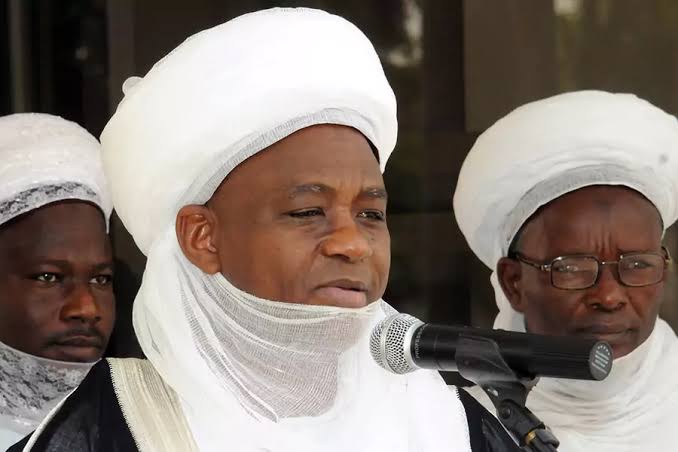No fewer than 3.2 million books from 200 works of Islamic scholars from the Sokoto Caliphate have been edited, published and distributed across the country, the Sultan of Sokoto, Alhaji Muhammad Sa’ad Abubakar has said.
The Sultan made the disclosure while addressing a three-day conference on Islamic Learning and Scholarship in Africa organised by Arewa House in conjunction with the Organisation of Islamic Conference (OIC), International Research Center for Islamic History Culture and Arts (IRCICA) Turkey and Al Istiqama University Sumaila, Kano. Sultan Abubakar said the books were published in English , Arabic and Hausa languages at the Arewa House.
He stated that the exposure of African heritage will help restore the identity of Africans, their worth and prepare them for the future.
“The Caliphate leaders alone wrote over 300 works considered the works of the daughter of Usman Danfodio Nana Asma’u and some of his students like AbdulKadir zul Mustapha. These works covered a wide range of subjects from well-known Islamic scientists of tafsir Qur’an, sociology, economy, political science and medicine. We have so far edited and published over 3.2 million books of 200 works of these great leaders and they have gone round the country and libraries of individuals and schools across the world.
“These books are in English, Arabic and Hausa and insha Allah at the end of this conference, I will bring some of these books to our guests, at least those from outside the country. We are in the era that European imperialism has done a lot to hide these treasures from us by keeping them away from the curriculum of government schools among other policies. But we are determined to bring out these intellectual works and resources and render them in languages that will allow the great majority to access them. The conference should also help unearth our heritage and make it available to the world.”
The chairman of the conference, a professor of history and former vice chancellor of Adamawa State University, Prof. Al Kasum Abba said there is nothing more important than scholarship as no organisation can be run based on ignorance. “It’s great that this conference is taking place on Islamic Learning and Scholarship in Africa. People don’t recognise that long before English came there was learning in Islam. Going into the history of Islamic education in Africa is very important.
“The Sokoto jihad was a social movement but the British came and called it Fulani jihad because they wanted to establish their own. We have not been studying, projecting the Islamic scholarship the way it should be projected. The Sultan of Sokoto and Shehu of Borno should help in establishing funds to study the 19th century jihad because it took different dimensions for the jihads in Sokoto and Borno. We equally need funds to translate all the writings of the 19th Century so that we understand the history of our society.”
For Governor Uba Sani of Kaduna State, who was the chief host, the conference is timely and apt in projecting the contribution of the Muslim world to global knowledge. The Governor noted that the Sokoto Caliphate holds the distinction of being a leading contributor of knowledge in Africa. He said famous Islamic reformer, Sheikh Usman Bin Fodio and his brother Sheikh Abdullahi Fodio made enduring contributions in areas of moral leadership, spiritual knowledge, agriculture and commerce.
Sani expressed hope that the conference would develop a framework for reinventing Islamic education to align with global dynamics in equipping youth with life skills, while emphasizing that it is important to equip young people with skills that will enable them compete globally and contribute meaningfully to the society.
The conference was attended by Islamic scholars, researchers, and experts from various parts of Africa and the world. Among the dignitaries were the Shehu of Borno, Alhaji Umar Garbai el-Kanemi, the deputy governor of Kano State, Alhaji Aminu Gwarzo, who represented Governor Abba Yusuf, Dr Usman Bugaje, the director general IRCICA, Mahmud Erol Kilic, the secretary general of OIC, Hissein Brahim Taha was represented by the director of Cultural Affairs, the Vice Chancellor of Ahmadu Bello University, Zaria was represented by the deputy vice chancellor Administration, Prof. Ibrahim Dogo.





